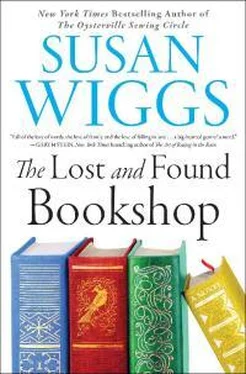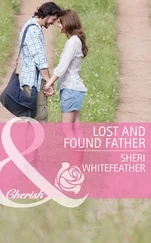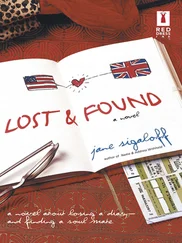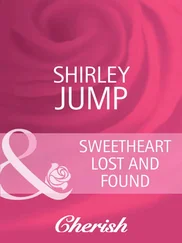She eagerly agreed. The moon garden of the mansion was famous, having been designed with night-blooming flowers lining the pathways and hillocks of the landscape. They stepped through the open doors, went down the wide stone steps, and were greeted by the heady perfume of late-blooming autumn flowers. The pale blossoms were lit from below, setting a mood of mystery. A fountain of natural stone rose up out of a pond surrounded by terra-cotta sculptures.
“It smells so nice out here,” Natalie said. “What an incredible garden. I could get used to hanging out with the haute monde .”
“You like the good life, then.”
“Do you blame me? Don’t you?”
He shrugged. “I like life. It’s all good.”
“That’s a very healthy attitude. Your parents must have raised you right.”
“I reckon they’d be pleased to hear that,” he said.
A few other visitors strolled the grounds, their murmurs of conversation drifting as they passed. Natalie felt an urge to take his arm but thought better of it. She sensed something new between them, but it could be just her imagination—or wishful thinking. Despite the tux and black tie, he was still Peach, the guy who had installed a new low-flow toilet in her apartment and was keeping the roof from falling in.
They passed a special display—marked by warning signs—of poisonous plants. Natalie had always been intrigued by the pendulous white angel’s trumpets and the small, deceptively innocent-looking berries of deadly nightshade. “That one’s a favorite in murder mysteries,” she said. “Supposedly ten berries will kill a person. The poison’s called atropine.”
“The name comes from Atropos, one of the three Fates,” Peach said.
“Oh, now you’re showing off again.”
“What good is knowing stuff if you can’t use it? Atropos was a bitch of a Fate. She could take you out by cutting the last thread of your life’s tapestry.” He made a snipping motion with his hand.
“I’ll steer clear of her.”
The path ended at a wrought-iron railing at the edge of the hill. Natalie’s breath caught as she surveyed the view. In the distance below, the lights along the shore and bridges reflected off the bay. “I love this city,” she said. “After college, I couldn’t wait to move somewhere else, but now that I’m back, I appreciate it so much.” She glanced up at him. His face was in shadow but a glint of light showed the curve of his smile.
“I like it here, too. I like the crazy charm of this city. Maybe I even love it here, and so does Dorothy.”
“How long have you lived in the city?”
“Let’s see . . . we moved from Atlanta the year Dorothy was born. Regina landed a job in investment banking right out of grad school. I was just out of the military. The plan was to swap baby duties. I’d be with Dorothy during the workweek, and her mom took over while I did renovations after hours and on the weekends. It seemed like a good system, but it wasn’t so great for the marriage.”
“Sounds hard,” she said, trying to imagine the struggles of a young family. She felt like asking him a million questions but didn’t want to inundate him. Realizing he was single had caused such a swift realignment of her impression of him that she wanted to dig down a layer. Questions that would be inappropriate to ask a married man were suddenly possible.
“You’re looking at me funny,” he said.
They were unbalanced. After all the hours he’d spent in the bookstore, he knew everything about her. Yet he’d never leveled with her about his own life. It made her wonder what else he hadn’t told her.
“I feel like I’m just getting to know you,” she said.
“What? I’m an open book. Ask me anything.”
“How is it you’re so smooth at a black-tie event? Did you have some kind of fancy life back in Atlanta?”
“Ha. You could say that. Or you could say a phony life.”
“What was phony about it?”
“Damn, where do I start? My dad was in finance. The kind you’re picturing—big house in an old neighborhood, a staff, private schools, plenty of black-tie action. It was all great until Dad went to prison for fraud.”
“What? No.”
“Yep. My sister and I were teenagers. We didn’t know what hit us. Everything went away, practically overnight. The only money we had was in our college savings plans. So instead of college, Junebug went into treatment, and I joined the Marines. The only things left had no value, like how to wear a tux. Which fork to use. How to saber the top off a bottle of champagne.”
Natalie absorbed the information. It made her head spin. “Junebug’s your sister?”
“Yeah. June Barbara. She had some trouble with prescription drugs. Seems to be okay now.”
“I don’t know what to say.” What most fascinated Natalie about Peach was the way he seemed to take life in stride. Clearly he’d had his share of ups and downs—a massive family drama, a stint in the military he didn’t talk about, a divorce—yet nothing seemed to faze him. She wished she could be more like that.
A breeze lifted her hair, and she shivered slightly.
“Cold?” he asked. “You want my coat?”
“I’m fine.”
“You’re cold.” He quickly took off his tux jacket and draped it around her shoulders, keeping hold of the lapels.
She savored the delicious warmth of his body heat enveloping her. “Well, thank you.”
“It’s a shame to cover up that pretty dress,” he said. “It looks really nice on you.”
“It was my mother’s,” she said, smoothing her hands down the silk. “Cleo and I picked it out when we emptied her closet.”
“That makes it even nicer,” he said.
She nodded, snuggling into the jacket. “I keep thinking I’ll stop missing her. And then I realize I don’t want to stop missing her. What I want,” she said, letting the raw admission slip out, “is to stop it from hurting so much.”
“Ah, Natalie.” Very gently, he slid one arm around her back. “I’m sorry. Wish I could help.”
She paused, sending herself a stern reminder to be here now, not back in the morass of grief that sucked her in with brutal regularity. “You are helping,” she blurted out. “I don’t think you realize that, Peach. You’ve been around through this whole mess, and you’ve been steady, and good to my grandfather, and you’re fixing my house and you made me a closet, and whether you know it or not, that’s helping. I honestly don’t know how to thank you.”
He gazed down at her. The intent look in his eyes stopped her breath. “So this Trevor guy,” he said. “Is he your boyfriend?”
“My . . . No,” she said quickly, almost urgently. “Why do— I mean, we went out a couple of times, that’s all.”
“Hm,” he said.
“What’s that supposed to mean?”
“Just, hm.” He lifted a stray curl from her face, and then kept his hand there, cupping her cheek.
“You never told me you were single,” she said.
“You never told me it mattered,” he said.
And then he pressed her up against the wrought-iron fence and kissed her.
It was that kind of kiss. She recognized it instantly—the soft lips, the champagne-sweet taste of him, the melding of their breath for the first time. She leaned in, her lips parting slightly, and willingly lost herself. She let everything fall away—grief, worry, confusion, loneliness. When he pulled back, she felt dazed.
He looked utterly pleased, his mouth curved in a beguiling half smile, his gaze studying her.
She felt the need to say something. “That was . . .” She took a breath, started again. “I’m flustered.”
“In a good way,” he said.
“I don’t like being flustered,” she said.
Читать дальше












